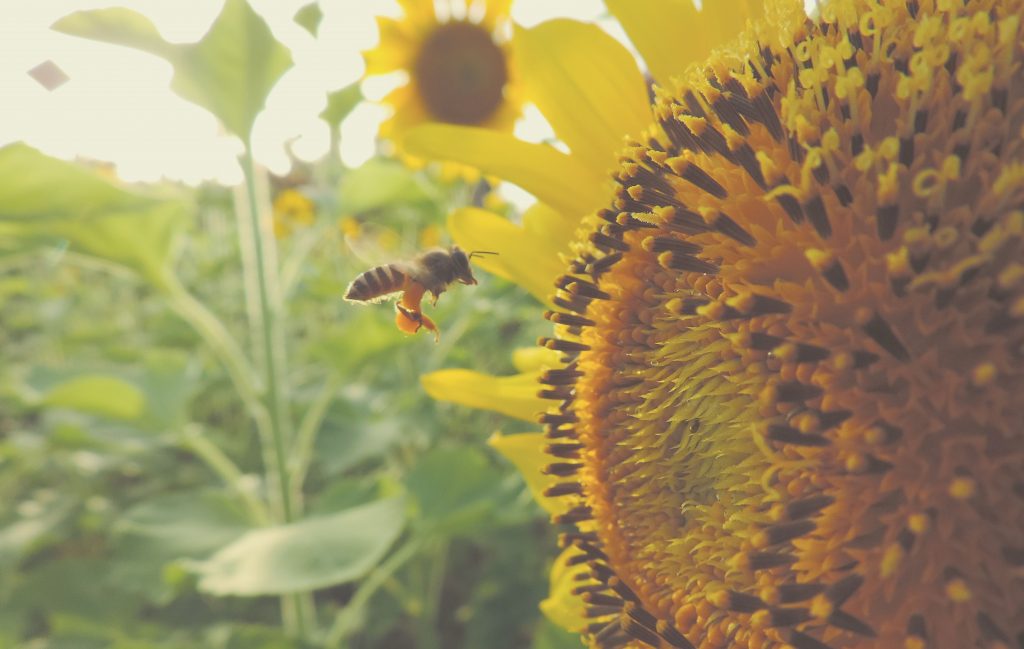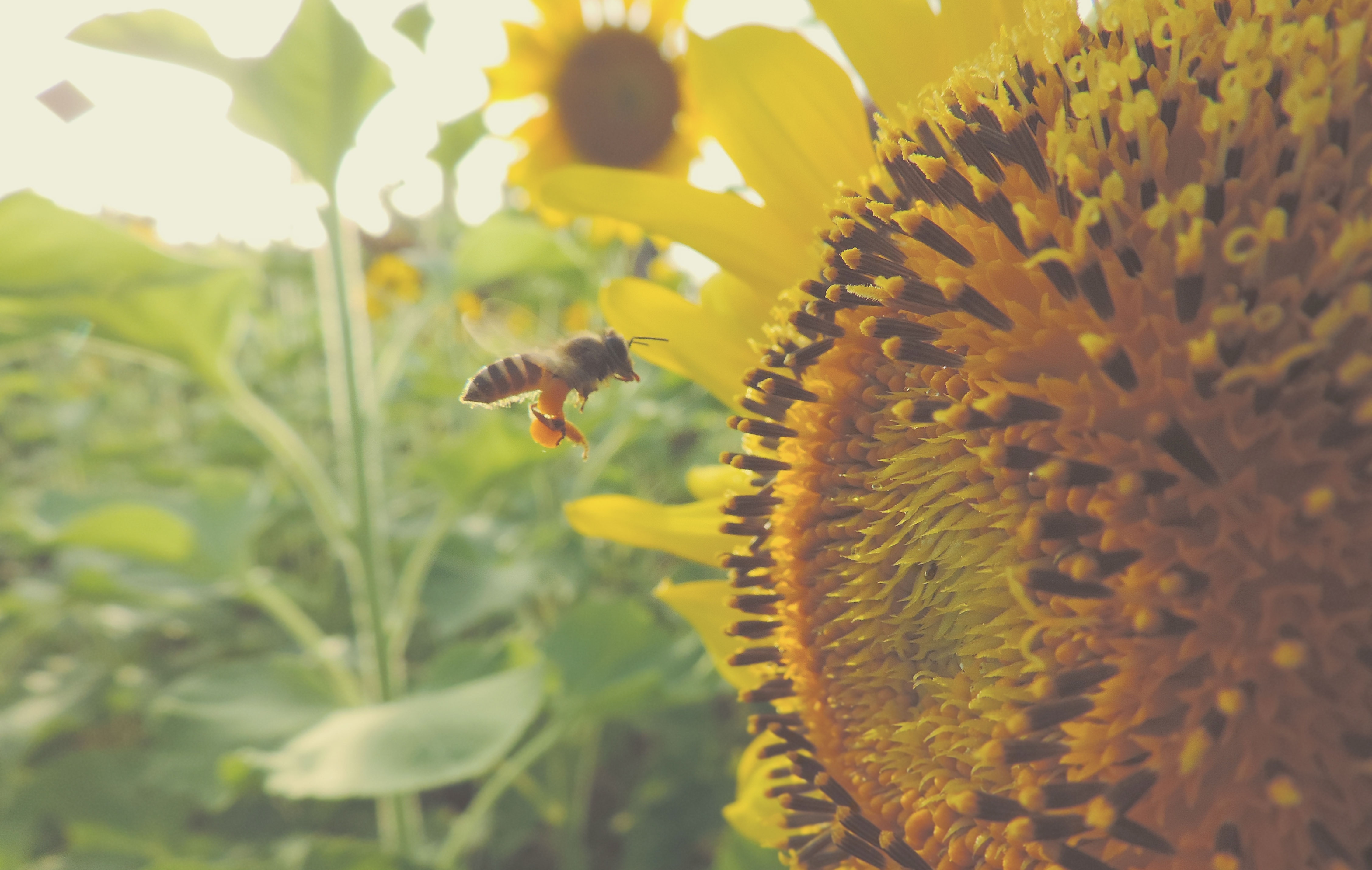
It’s easy to panic and reach for a chemical spray at the first sight of greenfly or diseased plants. But there’s a more natural way. Here’s how:
- Encourage wildlife. Instead of using pesticides that will harm all insects good and bad – lure in the beneficial ones. Ladybirds and hoverfly larvae will eat aphids – they like chives, fennel and cosmos, or invest in a bug hotel. Ground beetles eat slugs. Birds will help keep down snails as will frogs. Try a birdbath, feeder or berries for birds and a little pond for frogs.
- Keep weeds down naturally. Weeds carry disease, and steal light, water and nutrients from your plants. A thick mulch of bark or well rotten manure will keep them at bay, as will pulling them out as young seedlings.
- Patrol to keep control. Aphids like the new tender growth of plants like clematis and rose buds, so keep an eye out for them – they can make leaves curl up. Squish them off by hand, or use a strong spritz of water. Or try soapy water made with Dr Bronner’s liquid soap or garlic sprays (see permaculture.com for recipe). After it’s rained, inspect any favourite, or young tender plants for slugs – pick them off and drown them! Also look out for plant diseases such as rose black spot, and prune any affected bits of the plant before it spreads.
- Improve your soil. Good soil is the key to plants that are less likely to be affected by pests and diseases. Adding compost or manure, will improve drainage of heavy soils and allow dry soils to hold moisture and nutrients – it’ll also encourage earthworms, which help create a good soil structure.
- Give your plants breathing space! One of the best ways to avoid powdery mildew – a white powdery disease on leaves is not to overcrowd plants. If you do spot the signs, cut off infected leaves and destroy them – sterilising your secateurs afterwards. And a spray of 30% milk to water makes a good alternative to fungicide.
- Ward off slugs and snails. A great organic solution to slugs is nematodes, such as Nemaslug, that you pour onto the soil killing slugs above and below ground. Organic wool pellets that expand into a rough mat are another option as is crushed eggshell or gravel which slugs find hard to slither over. Or leave a half buried jar of beer near strawberries (you can buy commercial beer traps) or surround plants with copper rings that give slugs a little electric shock!
- Fertilise naturally. Instead of quick fix chemical fertilisers, using organic fertilisers such as blood fish & bone, chicken pellets or seaweed will nourish the soil as well as the plant. Bio char and rock dust are good. See organiccatalogue.com for some great organic tomato and rose feeds.
- Finally, water well. The right amount of water stops plants becoming vulnerable to diseases. In warm weather a really good soaking once a week should be enough. Equally, be aware of waterlogging plants, especially those in pots as that can encourage spotting and other problems – if in doubt poke your finger into the soil and see how it feels.
Even adopting just a few of the above ideas will help. Happy healthy gardening, Janine
Follow me on instagram @janinewinlaw

